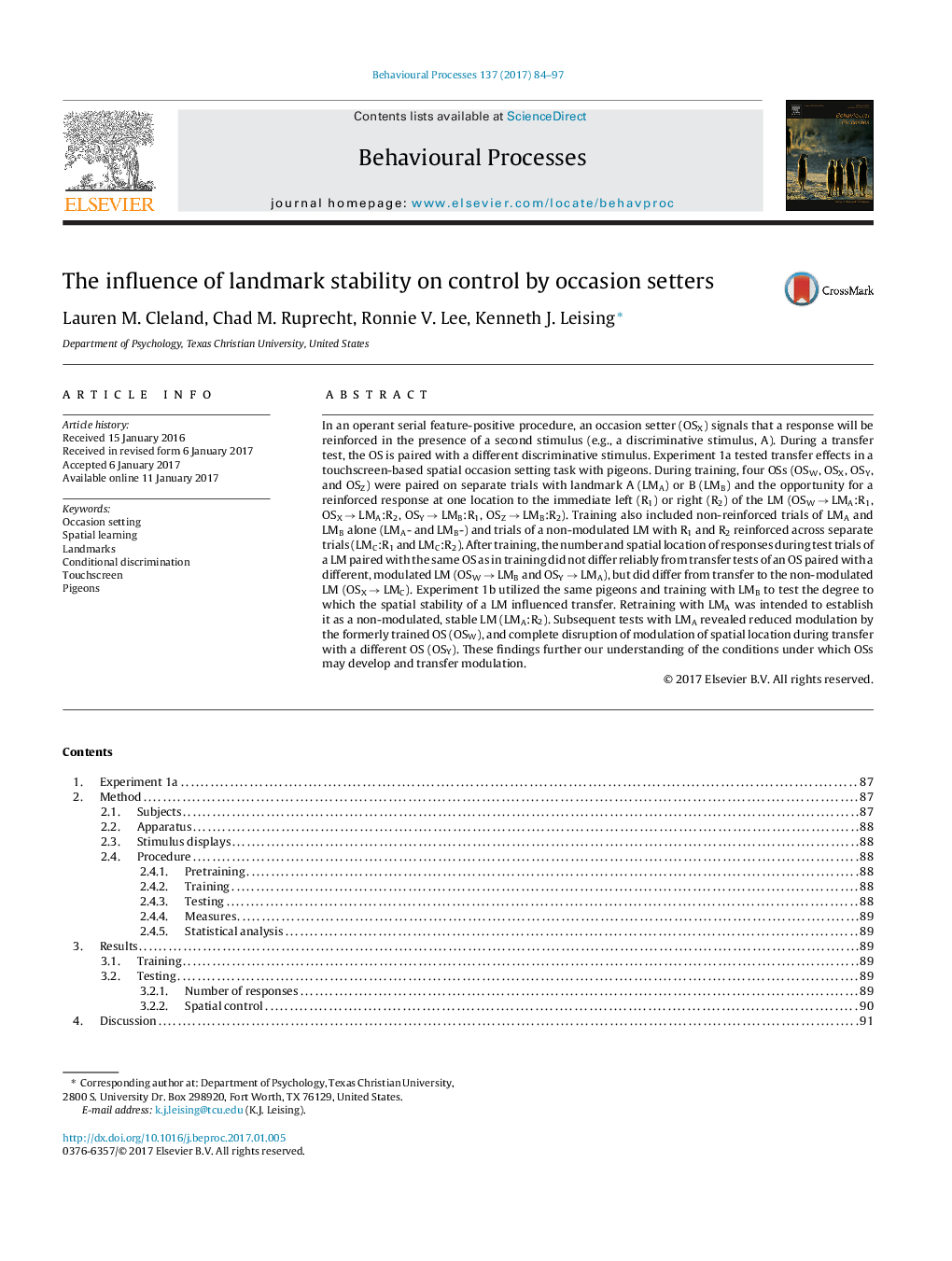| Article ID | Journal | Published Year | Pages | File Type |
|---|---|---|---|---|
| 5539805 | Behavioural Processes | 2017 | 14 Pages |
â¢Spatial occasion setting in a touchscreen task with pigeons was examined.â¢Transfer of occasion setting was complete only with a previously modulated unstable landmark.â¢Acquired equivalence effects were found during transfer.â¢Retraining of a landmark's spatial stability disrupted, but did not eliminate modulation.
In an operant serial feature-positive procedure, an occasion setter (OSX) signals that a response will be reinforced in the presence of a second stimulus (e.g., a discriminative stimulus, A). During a transfer test, the OS is paired with a different discriminative stimulus. Experiment 1a tested transfer effects in a touchscreen-based spatial occasion setting task with pigeons. During training, four OSs (OSW, OSX, OSY, and OSZ) were paired on separate trials with landmark A (LMA) or B (LMB) and the opportunity for a reinforced response at one location to the immediate left (R1) or right (R2) of the LM (OSW â LMA:R1, OSX â LMA:R2, OSY â LMB:R1, OSZ â LMB:R2). Training also included non-reinforced trials of LMA and LMB alone (LMA- and LMB-) and trials of a non-modulated LM with R1 and R2 reinforced across separate trials (LMC:R1 and LMC:R2). After training, the number and spatial location of responses during test trials of a LM paired with the same OS as in training did not differ reliably from transfer tests of an OS paired with a different, modulated LM (OSW â LMB and OSY â LMA), but did differ from transfer to the non-modulated LM (OSX â LMC). Experiment 1b utilized the same pigeons and training with LMB to test the degree to which the spatial stability of a LM influenced transfer. Retraining with LMA was intended to establish it as a non-modulated, stable LM (LMA:R2). Subsequent tests with LMA revealed reduced modulation by the formerly trained OS (OSW), and complete disruption of modulation of spatial location during transfer with a different OS (OSY). These findings further our understanding of the conditions under which OSs may develop and transfer modulation.
